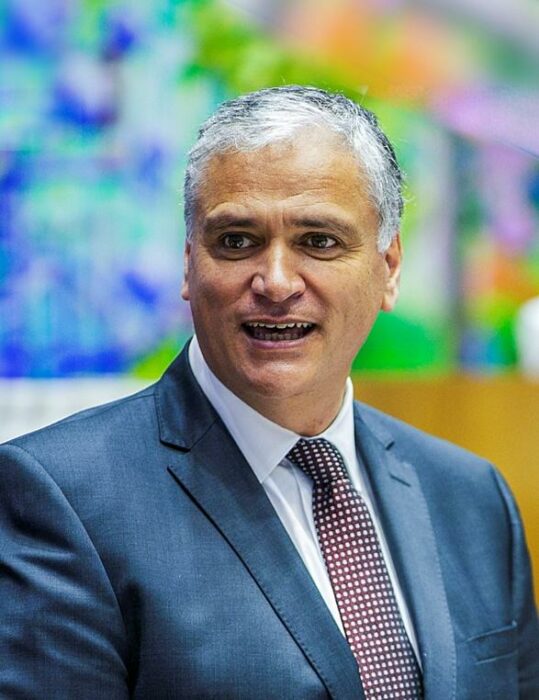The Progressive Post
Strengthening territorial cohesion and the single market

In a speech at the first Intergovernmental Conference delivered on 9 September 1985, the late Jacques Delors, then president of the European Commission, laid a clear marker regarding the way the single market should be constructed within the European Union. He said: “history teaches us that a large single market cannot be of universal benefit unless its growth is sustained by flanking policies. It is time to reaffirm the resolve to achieve the essential cohesion of the Europe of Twelve, with all that that implies”.
The single market, according to Delors, should be developed with the objectives of solidarity and cohesion in mind, so as to avoid leaving people and regions behind. ‘Flanking policies’ at the level of the European Union would be created to counteract the negative effects of market liberalisation and to ensure that all regions fully participate in and benefit from the opportunities provided by the single market. A year after Jacques Delors’s speech, the Single European Act was signed, paving the way for the foundations of cohesion policy as we know it today.
Let us fast-forward to the present. With the European elections just around the corner, the European Union finds itself at a crossroads. There has never been a better time to remind ourselves that the single market and cohesion policy are two sides of the same coin.
This is very important, because the case for the EU to seriously deliver on its treaty objective to promote harmonious development within all territories in Europe needs to be made more forcefully than ever. The evidence presented in the recently published 9th Cohesion Report is compelling: 30 years on from the creation of the single market and of cohesion policy, and 20 years after the 2004 enlargement, there is no doubt that many parts of Europe have experienced upward economic and social convergence. But convergence has been uneven across the EU, with many regions falling behind into the now familiar ‘development trap’ conundrum. For instance, one third of the EU’s population lives in places that are slowly falling behind.
Enrico Letta’s report on the future of the single market, published last month, rightly confirms that economic, social and territorial cohesion should continue to be the central objective of the single market. The Letta report includes promising proposals stating that efforts to deepen or expand the single market should be accompanied by actions at the EU level to prevent major economic and social imbalances.
The question that remains is how to ensure such an ambition can become at the very top of the EU agenda for the coming five years and beyond.
From my point of view, the starting point is to ensure that the pursuit of economic, social and territorial cohesion is put at the very top of the EU agenda for the coming five years. Beyond that, we need to ensure that such an essential objective is integrated as part of all EU policies. The ‘do no harm to cohesion’ principle has to become a reality for all EU policies, many of which are unfortunately blind to the reality of territories across Europe.
Secondly, the only way to guarantee that the single market continues to provide benefits to all regions, including those considered as less developed, is to work towards a stronger cohesion policy in the future which continues to support all regions in Europe. The European Committee of the Regions study Cohesion Policy and the Single Market: the cost of non-cohesion published in February this year makes it crystal clear that restricting cohesion policy support to a limited number of regions in the future would achieve nothing but increase disparities in the future.
Thirdly, we must redefine the type of ‘flanking policy’ – to use Jacques Delors’ words – to address the potential imbalances caused by the completion of the single market. And of course, we are talking about cohesion policy. Let us be clear: cohesion policy as we know it today, as the decentralised EU investment instrument delivered in partnership with all regions and cities, is at risk. We must not succumb to the temptation – echoed by some inside the European Commission and in some EU capitals – to radically rethink the main EU investment instrument so that it becomes more centralised and less focused on territorial realities. Instead, we should take this opportunity to renovate cohesion policy by strengthening its very foundations so that it can lead to a more inclusive single market.
This call is not only mine. It is also the one of thousands of mayors and regional leaders who gathered in Mons for the European Summit of Regions and Cities. It must be the one of our progressive Socialist and Social Democrat family. It must be the one of all candidates for the European elections who have progress and fairness at heart.
As we face the most complex period of our common history, facing enlargement, the green and digital transitions, and an ageing population, we cannot afford to leave people behind when addressing such structural transformations. It is up to us to ensure that Europe answers with solidarity, progress and a strong cohesion policy at the heart of the European Union and of all our regions and cities.
Photo Credits: AgoraCohesion/ChristophSchnaudigel




